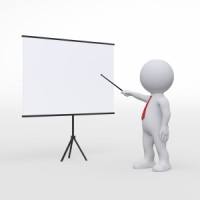What is the Role of Self-Efficacy in Sales Education?
 Did you know that sales is one of the top three careers for business graduates (Cummins, Peltier, Erffmeyer, & Whalen, 2013)? Perhaps you did, but did you also know that sales is among the top five jobs for nonbusiness graduates with majors in areas like agriculture, art, biology, communications, computers, math, education, engineering, humanities, industrial arts, law, psychology, and social sciences, just to name a few (Carnevale, Strohl, & Melton, 2010)? In fact, more graduates of 4-year college programs in all disciplines find their first career positions in sales-related roles than in any other types of positions combined (Hayes, 2008).
Did you know that sales is one of the top three careers for business graduates (Cummins, Peltier, Erffmeyer, & Whalen, 2013)? Perhaps you did, but did you also know that sales is among the top five jobs for nonbusiness graduates with majors in areas like agriculture, art, biology, communications, computers, math, education, engineering, humanities, industrial arts, law, psychology, and social sciences, just to name a few (Carnevale, Strohl, & Melton, 2010)? In fact, more graduates of 4-year college programs in all disciplines find their first career positions in sales-related roles than in any other types of positions combined (Hayes, 2008).
Inspired by this information and a desire to prepare students for these first careers, the authors of “The Role of Self-Efficacy in Sales Education” from Journal of Marketing Education explored how sales educators can help students build the self-efficacy needed to succeed in sales.  Self-efficacy, one’s perception about his/her ability to succeed in a given task (Bandura, 1977), impacts ultimate performance (Barling and Beattie, 1983). Thus, it is essential that sales educators prepare students with the confidence to “hit the ground running.”
Self-efficacy, one’s perception about his/her ability to succeed in a given task (Bandura, 1977), impacts ultimate performance (Barling and Beattie, 1983). Thus, it is essential that sales educators prepare students with the confidence to “hit the ground running.”
Findings show that in-class activities and hands-on projects are great for building knowledge and skills, but actual interaction with professionals (shadowing, interviews, selling to a salesperson, etc.) and student competitions build confidence in using one’s skills. Sales educators are encouraged to use these and other professional experiential activities to build sales self-efficacy, a student’s belief about his/her ability to sell!
Authors Peter Knight, Claudia C. Mich, and Michael T. Manion invite you to further explore “The Role of Self-Efficacy in Sales Education.”























































































